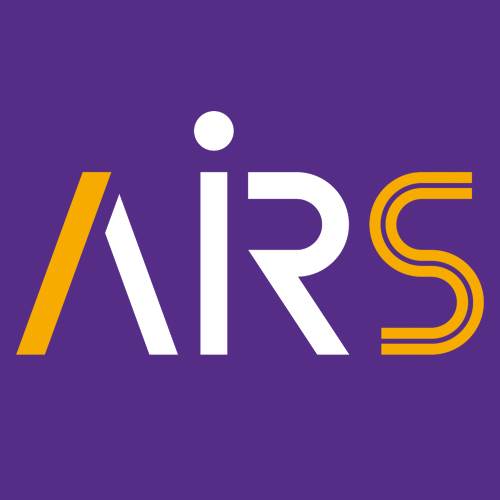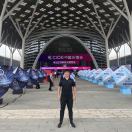

Hide
Event DetailsHide...
数据驱动框架监测焊接接头裂纹尺寸的整合与数字双胞胎技术
摘要
在为海洋可再生能源和沿海保护设计的下一代浮动结构中,焊接接头经常遭受来自环境作用的循环载荷,导致关键焊接细节中的疲劳裂纹的产生和扩展。确保这些结构的安全、可持续运行,同时优化检验和维护的生命周期成本,需要对这些关键结构组件中的裂纹尺寸进行准确测量。本讲座分享了演讲者的研究小组在测量焊接连接中裂纹尺寸方面所采取的先进无损检测(NDT)技术的探索,重点介绍了交流电位差(ACPD)和超声相控阵(UPA)等方法。在这些NDT结果作为基准的基础上,演讲还介绍了一种物理信息驱动的数据驱动数字双胞胎框架,用于确定焊接连接中表面裂纹的大小和形状。数字双胞胎是与实时传感器数据集成的物理结构的虚拟复制体,将裂纹尺寸的测定视为一个分类问题。结果表明,数字双胞胎预测的裂纹尺寸与物理样本的测量结果非常接近。讲座还将讨论数字双胞胎技术在大型海洋结构中的更广泛应用,强调其在恶劣海洋环境中监测、评估和维护关键基础设施的潜力,可能会带来革命性的变化。
引言
焊接接头是许多结构工程中的关键组成部分,尤其是在海洋工程和海洋可再生能源领域。随着对可再生能源的需求不断增加,浮动结构的设计和建造变得日益重要。然而,这些结构在其使用寿命内经常面临来自海洋环境的挑战,尤其是循环载荷和疲劳裂纹的形成。裂纹的存在不仅影响结构的完整性和安全性,同时也增加了维护和检测的复杂性。因此,开发一种高效、准确的监测和评估焊接接头裂纹的方法显得尤为重要。
焊接接头的裂纹监测技术
在过去的几十年中,研究人员和工程师们已开发出多种无损检测技术,以监测焊接接头中的裂纹。交流电位差(ACPD)是一种基于电流和电压测量的技术,通过检测焊接接头表面的电位差来识别裂纹的存在和大小。该方法具有高灵敏度和实时监测的能力,能够在不损害结构的情况下提供可靠的裂纹信息。
另一个重要的无损检测技术是超声相控阵(UPA),它利用超声波的传播特性来检测材料内部的缺陷。UPA技术能够提供高分辨率的图像,帮助工程师更好地理解裂纹的形状和位置。这两种技术的结合为焊接接头的裂纹监测提供了坚实的基础。
数据驱动的数字双胞胎框架
随着数字化技术的进步,数字双胞胎作为一种新兴技术,逐渐在工程领域中发挥重要作用。数字双胞胎是物理实体的虚拟复制,通过实时数据流与物理实体保持同步。在焊接接头的裂纹监测中,数字双胞胎能够整合来自各种传感器的数据,实时更新焊接接头的状态。
本研究提出了一种物理信息驱动的数据驱动数字双胞胎框架,用于焊接接头中裂纹的大小和形状的确定。通过将无损检测结果作为基准,数字双胞胎能够将裂纹尺寸的测定视为一个分类问题。通过机器学习和数据分析技术,数字双胞胎能够在实时监测中不断优化裂纹的预测,提供更为准确的评估结果。
结果与讨论
通过对实验样本的测试,结果表明,数字双胞胎预测的裂纹尺寸与传统无损检测方法的测量结果高度一致。这一发现不仅验证了数字双胞胎在焊接接头裂纹监测中的有效性,也为其在更广泛的工程应用中奠定了基础。
数字双胞胎技术在大型海洋结构中的应用潜力巨大。随着海洋工程的不断发展,传统的监测和维护方法已难以满足日益增长的需求。数字双胞胎能够提供实时监测、预测维护需求,并在恶劣环境中确保结构的安全性和可靠性。
结论
焊接接头的裂纹监测是确保海洋结构安全和可持续运行的关键。通过结合先进的无损检测技术与数据驱动的数字双胞胎框架,我们能够实现对焊接接头裂纹的高效、准确监测。这一研究不仅为焊接接头的完整性评估提供了新的思路,也为海洋工程领域的数字化转型提供了重要的参考。未来,随着技术的进一步发展和应用,数字双胞胎有望在更多的工程领域中发挥重要作用,推动基础设施的智能化和可持续发展。
分享嘉宾
钱旭东博士目前是新加坡国立大学(NUS)土木与环境工程系的副教授,同时担任该系的副主任(行政与财务)、结构与海洋工程研究小组组长、新加坡海岸保护与防洪韧性研究院(CFISG)战略、合作与技术转化主任、新加坡国立大学海洋研究与工程中心(CORE)主任,以及先进材料与结构中心(CAMS)主任。他于2000年和2005年分别获得新加坡国立大学土木工程专业的学士(一级荣誉)和博士学位。在加入新加坡国立大学担任教职之前,他在伊利诺伊大学香槟分校(UIUC)土木与环境工程系担任博士后研究员。钱教授的研究兴趣集中在结构的完整性评估和数据驱动的预测性维护上。他是多个顶级期刊的编委会成员,包括《国际疲劳杂志》、《工程断裂力学》、《工程材料与结构的疲劳与断裂》等。自2009年至2018年,他还担任国际船舶与海洋结构大会的不同技术委员会成员。同时,他也是美国材料试验协会E08(疲劳与断裂)和F42(增材制造)技术委员会的成员。
Abstract
Welded joints in next-generation floating structures designed for ocean renewables and coastal protection often experience cyclic loadings from environmental actions, leading to fatigue crack initiation and propagation in critical welded details. Ensuring the safe, sustainable operation of these structures while optimizing lifecycle costs for inspection and maintenance requires accurate crack sizing in these critical structural components. This lecture shares the journey, which the speaker’s research group has undertaken, in advanced nondestructive testing (NDT) techniques for measuring crack sizes in welded connections, focusing on methods such as Alternating Current Potential Difference (ACPD) and Ultrasonic Phased Array (UPA). Building on these NDT results as benchmarks, the presentation introduces a physics-informed, data-driven digital twin framework for determining the size and shape of surface cracks in welded connections. The digital twin, a virtual replica of the physical structure integrated with real-time sensor data, treats the crack sizing as a classification problem. Results demonstrate that the crack sizes predicted by the digital twin align closely with measurements from physical specimens. The talk will also discuss the broader application of digital twin technology in large-scale offshore structures, emphasizing its potential to revolutionize the monitoring, assessment, and maintenance of critical infrastructure in harsh marine environments.
About the speaker
Dr. QIAN Xudong is currently an Associate Professor in the Department of Civil and Environmental Engineering (CEE) at the National University of Singapore (NUS), Deputy Head (Administration and Finance) of CEE at NUS, Group Head of the Structural and Offshore Engineering, Director (Strategy, Partnership and Technology Translation) for Coastal Protection and Flood Resilience Institute Singapore (CFISG), Director for Centre for Offshore Research and Engineering (CORE), and Director for Centre for Advanced Materials and Structures (CAMS) NUS. He received his Bachelor (1st Class Honors) and PhD in Civil Engineering from NUS in 2000 and 2005, respectively. Prior to joining NUS as a faculty member, he worked as a post-doctoral research associate in the Department of Civil and Environmental Engineering, University of Illinois at Urbana Champaign (UIUC). Prof Qian’s research interest focuses on the integrity assessment of structures and data driven predictive maintenance. Prof Qian is a member of the editorial board in a number of premier journals including International Journal of Fatigue, Engineering Fracture Mechanics, Fatigue and Fracture of Engineering Materials and Structures, etc. Prof Qian has been serving as members in different Technical Committees for the International Ship and Offshore Structures Congress from 2009 to 2018. He is also a member of the technical committee in American Society of Testing and Material E08 – Fatigue and Fracture and F42 – Additive Manufacturing.






 AIRS 研究院
AIRS 研究院





















